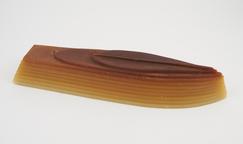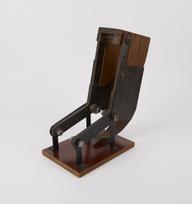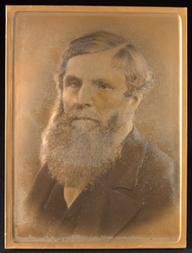

William Froude 1810 - 1879
- occupation:
- Engineer,
- Naval architect
- Nationality:
- English; British
- born in:
- Devon, England, United Kingdom
1832 - graduated BA with first-class honours in mathematics fom Oriel College, Oxford. 1833 - began work on the survey for the South Eastern Railway as a pupil of the engineer Henry Palmer. 1837 - awarded an MA from Oriel College. Joined the staff of Brunel, for whom he managed the last section of the Bristol to Exeter line. 1846 - retired from full-time work to assist his ailing father. Became a Member of the Institution of Civil Engineers. 1857 - converted to Roman Catholicism by John Henry Newman. 1859 - following the death of his father, went to live at Paignton in Torbay. 1861 - presented a paper to the Institution of Naval Architects which provided the first correct theory of the behaviour of a ship in a seaway. 1869 - was a member of a British Association committee to improve estimates of the power required to drive a ship. 1870 - accepted by the Admiralty to conduct a series of experiments on the water resistance of ship models, from which he demonstrated the true bearing of the doctrine of stream-lines, and the qualifications that had to be introduced to reconcile the simpler forms of that doctrine with the condition of a ship moving at the surface of the fluid. Elected a Fellow of the Royal Society. 1873 - designed a dynamometer which would measure the performance of model propellers both in isolation and in the disturbed flow behind a ship. 1875 - served as president of the Mechanical Section of the British Association at Bristol. 1876 - received the Royal Medal from the Royal Society. 1877 - elected a Member of Council of the Institution of Civil Engineers. 1878 - went on a cruise to the Cape, in H.M.S. Boadicea, on the invitation of Commodore Richards.



